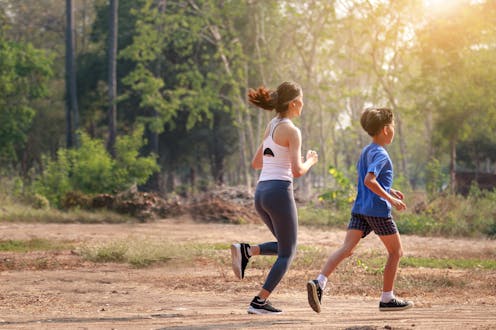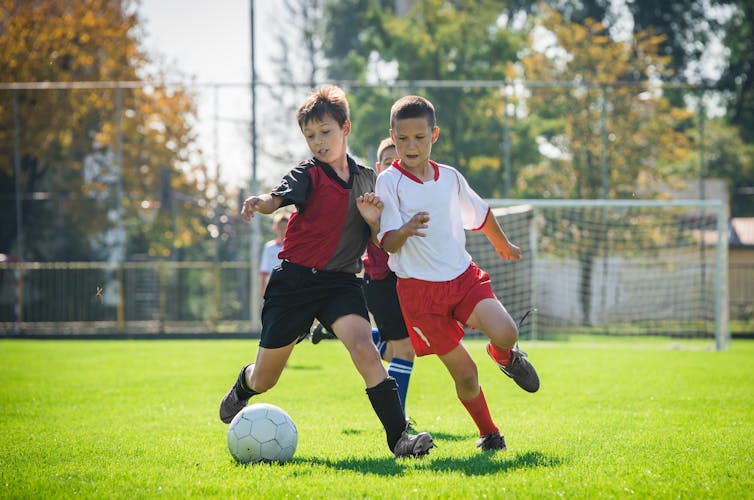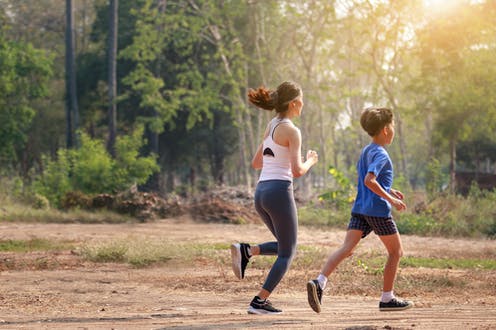
Whether it’s during the post-lunch slump or just one of those days, we all struggle to concentrate on what we’re doing sometimes, whether that’s at work, school, or home. Being able to concentrate on what we’re doing would inevitably make us more productive, but that’s often easier said than done. For people looking to improve their concentration, exercise is often recommended as the antidote – and for good reason, as research shows that physical activity can improve concentration in people of all ages.
I’ll define “concentration” as our ability to focus on a task and ignore distractions. So in order to have good concentration, we need to have two important aspects of cognitive function working at their best. The first is sustained attention, in which we’re able to focus on certain pieces of information for prolonged periods of time. The second is executive function, which is our ability to think and make decisions at a complex level.
But how does exercise help us improve these skills? Most research into the effects of exercise on concentration have studied the links in young people in schools. This is likely because of the clear effect concentration has on academic achievement, with a key priority of schools being to improve academic achievement and exam results.
Research shows that acute bouts of physical activity (such as walking or running during break) have a positive effect on concentration in young people. This effect has been shown after various forms of physical activity including walking, running and team games (such as football and basketball). But this effect tends to only last for around one hour, so regular opportunities to be active across the school day are important.
Another really interesting discovery is that young people with higher levels of fitness demonstrate superior concentration, when compared with less fit children. For example, young people who have higher cardiorespiratory fitness display better concentration than those who are less fit. So based on current evidence, regular physical activity appears to be very important for improving concentration in children.

Fotokostic/ Shutterstock
Although there’s less evidence in adults, research does still show that acute bouts of physical activity, such as a 20 minute walk or jog, enhance concentration for up to one hour afterwards. Studies have also shown that having people take breaks for physical activity during the work day improves self-reported concentration and mood – both of which could improve productivity. Physical activity and higher levels of physical fitness have even been shown to benefit many parts of brain function – including concentration – in people aged 65 and over.
We have less information though about the mechanisms that explain why physical activity improves our concentration. We think that it could be caused by certain psychological mechanisms – such as feeling more alert and having better mood following physical activity – that improve concentration. Increased blood flow to the brain and changes in the parts of the brain that are activated during and after exercise have also been suggested.
Get moving
But which types of exercise are best? The simple answer to this question is that it depends on a lot of things.
Some evidence shows that any exercise which requires decision making (such as team games, like football and hockey) might be particularly beneficial to concentration, due to the fact that your brain is engaged during these types of exercise.
But research also shows that any exercise which is extremely vigorous or exhausting, such as high-intensity interval training workouts may – at least in the short-term – actually have a negative effect on concentration, due to the fact that it’s very difficult to concentrate when exhausted.
The research is clear, however, that short bouts of moderate, physical activity are great at improving concentration immediately following exercise. This might include going for a brisk walk, a run, or even a leisurely cycle. But the best type of physical activity is one that you enjoy, and can be easily incorporated into daily life. Ultimately, people need to be able to regularly perform physical activity in order to gain both immediate and long-term benefits.
So if you spend a lot of time sitting at your desk during the work day, regular activity breaks will help you to keep your concentration on the task in hand. Even just taking your dog for a short walk or running to the shop for a quick errand will help.
![]()
Simon Cooper has received no research funding that directly impacts upon the content of this article.










